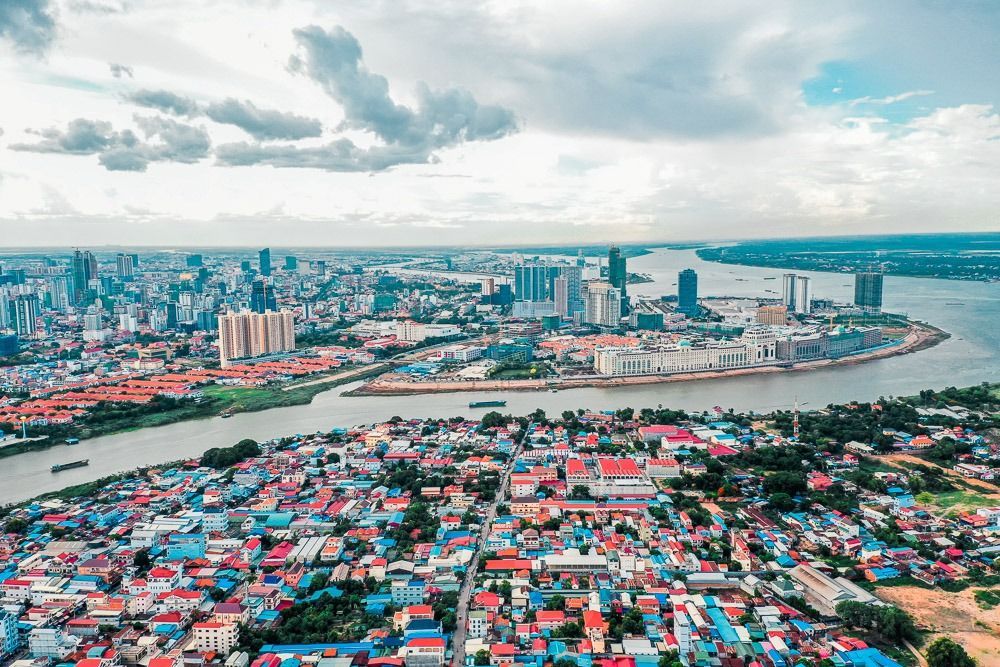Phnom Penh, the capital and largest city of Cambodia, is a fast-growing and dynamic destination that offers many opportunities for investors. The city has a population of about 2.3 million people, and a GDP of about $8.5 billion, making it the economic, political, and cultural center of the country. Phnom Penh has also been attracting a lot of foreign direct investment (FDI) in recent years, especially from China, South Korea, and Singapore. But is it safe to invest in Phnom Penh? What are the risks and rewards of investing in this emerging market? Here are some factors to consider before making your decision.
The Pros of Investing in Phnom Penh
- • High growth potential: Phnom Penh has been experiencing rapid economic growth, averaging about 7% per year since 2011. The city has a young and dynamic workforce, a strategic location in Southeast Asia, and a favorable business environment. The government has been implementing various reforms and policies to improve the investment climate, such as reducing bureaucracy, improving infrastructure, and promoting digitalization. Phnom Penh also has a strong demand for various sectors, such as real estate, tourism, manufacturing, and services.
- • Low entry barriers: Phnom Penh has relatively low entry barriers for investors, compared to other regional cities. The city has a low cost of living and doing business, with affordable labor, land, and utilities. The city also has a liberal foreign ownership policy, allowing foreigners to own up to 100% of most businesses, except for land and some restricted sectors. The city also has a low tax regime, with a corporate income tax rate of 20%, a value-added tax rate of 10%, and various tax incentives for qualified investment projects.
- • Diversified opportunities: Phnom Penh offers diversified opportunities for investors, ranging from traditional sectors such as agriculture and garments, to emerging sectors such as technology and green energy. The city has been developing several special economic zones (SEZs), industrial parks, and mixed-use developments to attract more investment and create more jobs. The city also has a vibrant startup ecosystem, with many incubators, accelerators, and co-working spaces supporting local entrepreneurs.
The Cons of Investing in Phnom Penh
- Political and social instability: Phnom Penh faces some political and social challenges that may affect the investment climate. The country has been ruled by the same party and leader since 1985, with limited democracy and human rights. The country also has a history of civil war, genocide, and coups, which may create some uncertainty and insecurity among investors. The country also faces some social issues, such as poverty, inequality, corruption, and environmental degradation.
- Legal and regulatory uncertainty: Phnom Penh has some legal and regulatory gaps that may pose some risks for investors. The country’s legal system is based on civil law, but it is not fully developed or enforced. The country lacks some key laws and regulations that are relevant for investors, such as bankruptcy law, competition law, intellectual property law, and consumer protection law. The country also has some inconsistencies and ambiguities in its existing laws and regulations that may create confusion and disputes among investors.
- Infrastructure and skills gap: Phnom Penh has some infrastructure and skills gaps that may limit the potential of investment. The city’s infrastructure is still underdeveloped or outdated in some areas, such as roads, railways, ports, airports, power supply, water supply, sanitation, and telecommunications. The city’s skills gap is also evident in some sectors, such as technology, engineering, management, and finance. These gaps may affect the quality and efficiency of investment projects.
How the investors should do in order to be safe for their investment
- Do your research: Before investing in Phnom Penh, you should do your research on the market, the sector, the project, and the partner. You should gather as much information as possible from reliable sources, such as government agencies, industry associations, chambers of commerce, and professional consultants. You should also visit the site, inspect the facilities, and meet the people involved. You should also check the legal and regulatory framework, the tax system, the dispute resolution mechanism, and the intellectual property protection in Cambodia.
- Diversify your portfolio: To reduce your risk and increase your return, you should diversify your portfolio by investing in different sectors, projects, and locations. You should also balance your short-term and long-term investments, and your local and foreign currency investments. You should also consider investing in special economic zones (SEZs), which offer various incentives and benefits for investors.
- Monitor your investment: After investing in Phnom Penh, you should monitor your investment regularly and closely. You should keep track of the progress, performance, and profitability of your investment. You should also maintain good communication and relationship with your partner, staff, customers, suppliers, and authorities. You should also be aware of any changes or developments in the market, the sector, the project, or the country that may affect your investment.
List of References:
- [Bing search results for “Phnom Penh investment”]
- [Manet calls for additions to Guangxi Zhuang investment | Phnom Penh Post]
- [Investment & Advisory | Mekong Strategic Capital | Phnom Penh]
- [Home – Phnom Penh Land]
- [Investing in Cambodia – ASEAN UP]
- [Cambodia Highlights 2020 – Deloitte]
- [Cambodia Special Economic Zones – ASEAN UP]
- [Phnom Penh’s Startup Scene: The Ultimate Guide – Startupblink Blog]
- [Cambodia country profile – BBC News]
- [Cambodia Overview – World Bank]
- [Cambodia: Legal System and Research Resources – GlobaLex]
- [Investment Guide to Cambodia 2020 – DFDL]
- [Infrastructure in Cambodia – ASEAN UP]
- [Cambodia Skills Gap Assessment – ILO]


